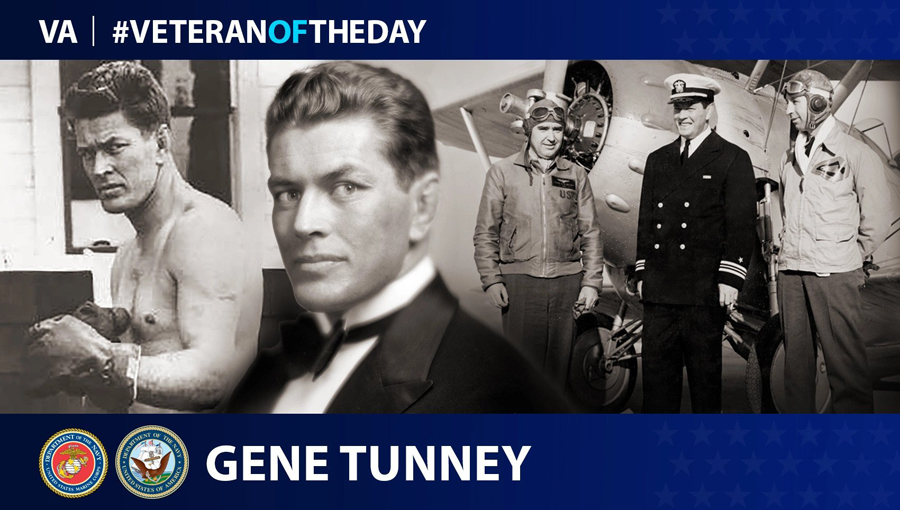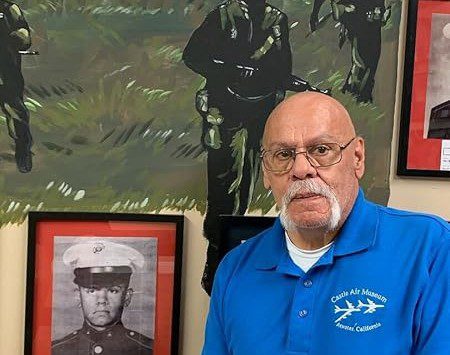
James Joseph “Gene” Tunney was born in May 1897 in New York City to Mary and John Tunney, the latter an Irish immigrant who worked 12-hour days to support his family of nine. Tunney attended Catholic schools before graduating in 1915 from LaSalle Academy. The athletic young man was interested in all sports while growing up but took a special interest in boxing after his father gifted him a pair of boxing gloves on his 10th birthday to defend himself against school bullies. He gained the attention of former boxer Willie Green, who taught him the fundamentals. After joining the Greenwich Village Athletic Club, he fought his first professional fight in July 1915 in New York City.
Although his first attempt to enlist in the Marine Corps at the start of World War I was rejected due to an arm injury, Tunney was later accepted in 1918 and was soon on his way to France. He was convinced to box while serving and won the light heavyweight championship of the American Expeditionary Force. Tunney was thought of as an intelligent fighter and strategic opponent, which led him to pursue a career in the sport when he returned after leaving the service.
Tunney began his professional boxing career on Nov. 14, 1919, and proceeded to win 24 consecutive fights over two years. While he injured his right hand in 1921, he was making a name for himself in the boxing community and began to engage in matches with increasingly well-known adversaries. He won the American light heavyweight title in a 12-round match on Jan. 13, 1922. He suffered his only defeat a few months later against Harry Greb on May 23, 1922, but later went on to defeat him three times. Transitioning to the heavyweight division, he won the championship in 1926 by beating the world famous Jack Dempsey in front of an audience of 120,000 people.
Upon retiring from a successful boxing career, Tunney married Polly Lauder and had four children while serving as a successful business executive on the boards of several corporations. He also served as director of the Boy Scouts of America and the Catholic Youth Club.
During World War II, Tunney re-entered the military and served from 1940 to 1945 as head of the Naval Physical Fitness Program. Over the course of his civilian career, he fought 88 fights with only one loss and was elected to the World Boxing Hall of Fame in 1980, the International Boxing Hall of Fame in 1990 and the Marine Corps Sports Hall of Fame in 2001. Tunney died in Greenwich, Conn., on Nov. 7, 1978.
We honor his service.










